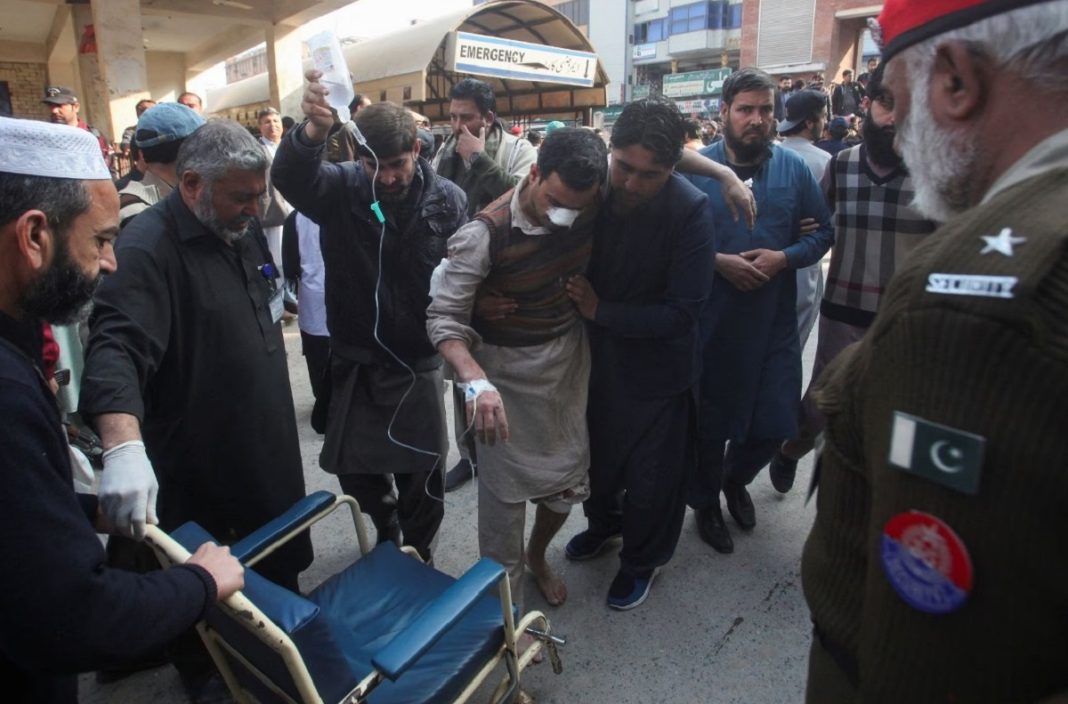At least 36 people were killed on Monday and about 150 people were injured, according to officials
Authorities said part of the building collapsed and that many people were feared to be trapped under the rubble.
Peshawar’s police chief, Muhammad Ijaz Khan, said in a televised statement that the capacity of the main hall of the mosque was nearly 300 and it was “nearly full” at the time of the explosion.
“We cannot at the moment confirm there was a suicide attacker but we need to conduct more investigations,” he continued, adding, “However, there is a possibility of there being a suicide bomber.”
No one immediately claimed responsibility for the bombing.
The mosque is situated in Peshawar’s Police Lines, which is part of city’s red zone and has numerous important government installations including the Chief Minister House, Governor House, and Khyber Pakhtunkhwa provincial assembly building.
Prime Minister Shehbaz Sharif condemned the bombing in a statement, and ordered authorities to ensure the best possible medical treatment for the victims. He promised “stern action” against those behind the attack.
Peshawar, the capital of the Khyber Pakhtunkhwa province bordering Afghanistan, has experienced frequent attacks.
Last March, a suicide bomber attacked a mosque in Peshawar, killing 64 in Pakistan’s deadliest terror attack since 2018. The Islamic State in Khorasan Province, ISKP (ISIS-K) claimed responsibility for the bombing.
Pakistan has seen a surge in violence during the last year, with numerous attacks on law enforcement officials, particularly in the Khyber Pakhtunkhwa province as well as southern province of Balochistan.
In November last year, Tehreek-e-Taliban Pakistan (TTP), who are ideologically aligned with the Afghan Taliban, unilaterally ended a ceasefire with the Pakistani state.
In 2022 alone, Pakistan’s monitoring agencies recorded more than 150 attacks launched by the TTP across the country, killing dozens of people.
Authorities fear the return to power of the Taliban in Afghanistan has emboldened the TTP and led to its resurgence.
The TTP has been waging a rebellion against the state of Pakistan for more than a decade.
The group demands the imposition of their hardline interpretation of Islamic law, the release of its members arrested by the government, and a reversal of the merger of Pakistan’s tribal areas with Khyber Pakhtunkhwa province.
